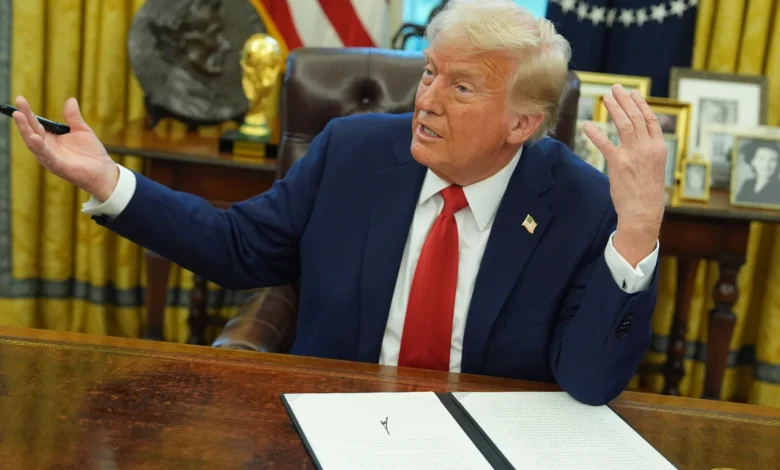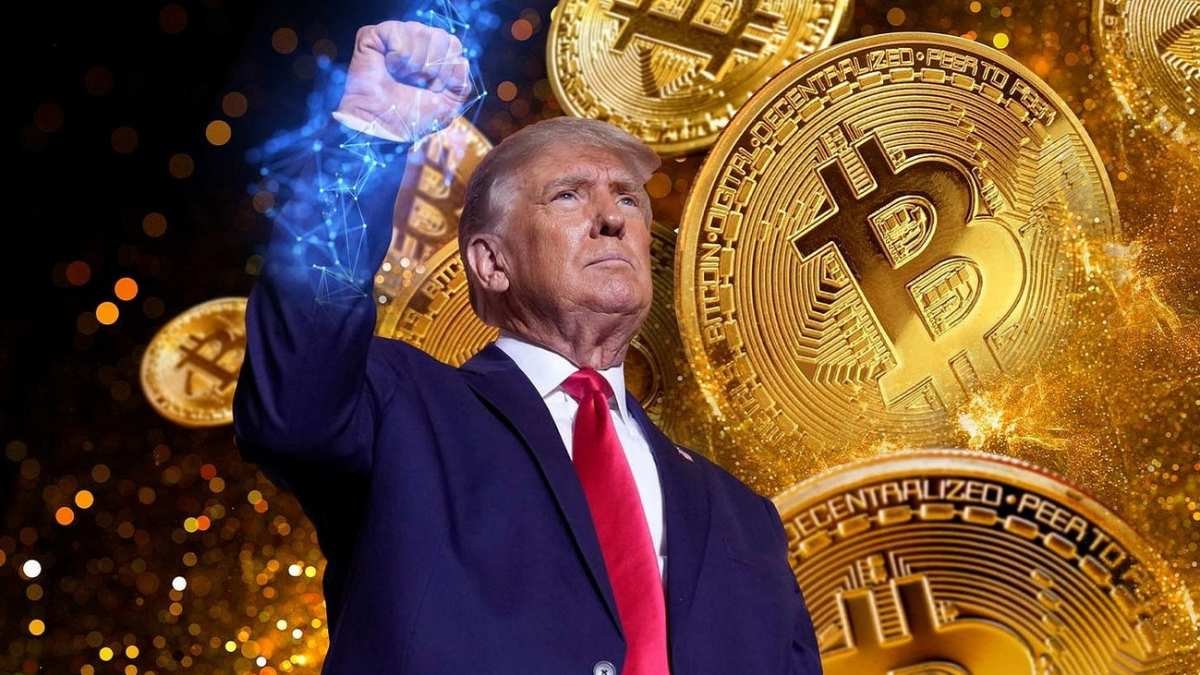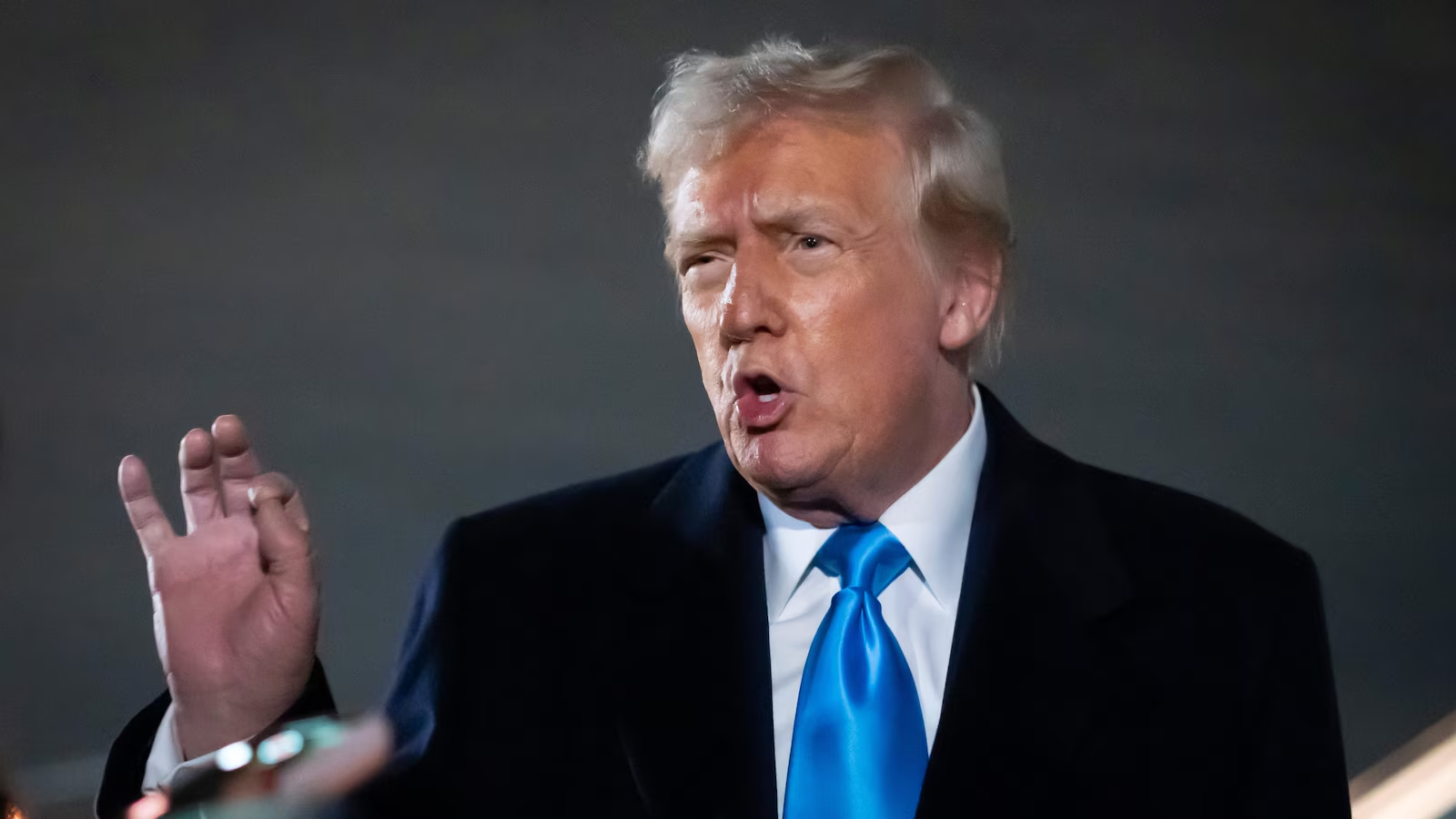Trump’s Crypto Order Impact and Uncertainty

Reports have surfaced that former president Donald Trump’s Crypto Order is gearing up to release a major executive order concerning cryptocurrency regulation. Which coincided with Bitcoin’s recent sharp spike. Economists, investors, and lawmakers are debating the possible consequences of this expected move for the future of digital currencies in the US.
Bitcoin’s Rise and Regulation
Bitcoin and other cryptocurrencies have gone from obscure investment options to widely used financial tools. Since its early adopters were libertarians and computer enthusiasts, Bitcoin has become increasingly popular with large organizations and institutional investors. The recent breach of the $1 trillion threshold in Bitcoin’s market capitalization indicates increased stakeholder interest and excitement.
The growing focus on regulatory frameworks underscores the need to define the operational limitations of cryptocurrencies. The. The acceptance and legitimacy of digital currencies can be achieved by more transparent regulation, which can encourage innovative technology.
Trump Crypto and Regulation

The market has responded well to the growing speculation that Trump may announce an executive order for cryptocurrencies. The Trump administration has a checkered history when it comes to cryptocurrencies, with a history of mistrust and demands for regulation. However, watchers point out that the market could benefit from more organized control if well-crafted executive orders.
According to political analysts, many factors could prompt Trump to return to the cryptocurrency market. These include the fact that digital currencies are becoming more popular among his supporters, the fact that they threaten traditional financial systems, and the need for a consistent policy to address security, taxes, and fraud issues related to crypto.
Bitcoin Surges on Trump Speculation
Investors’ euphoric optimism is reflected in the price increase of Bitcoin, which has been driven up by growing anticipation over Trump’s executive order. Forecasts indicating an imminent change in regulatory strategy supported the digital currency, which witnessed a substantial increase. Many investors are hopeful for a regulatory climate conducive to cryptocurrency, which would boost adoption and, in turn, values.
An increasing number of financial institutions are incorporating cryptocurrencies into their services, boosting investor sentiment even more. The fact that large financial institutions and asset management companies are exploring the possibility of providing crypto-related products shows that institutional interest is growing. Traditional financial markets may be more receptive to Trump’s proposal if it supports a growth-friendly framework.
The national conversation about cryptocurrency regulation might begin if Trump follows the executive order. Wyoming is among the states that have passed crypto-friendly legislation, but others have taken a more cautious approach. Legal ambiguity is a problem for companies and investors alike, but a federal mandate may unify standards, making everything clearer.
In addition, clearer regulations for the blockchain industry are needed. Decentralized could be spurred finance (DeFi) and non-fungible token (NFT) startups are especially vulnerable to regulatory climates. Businesses in these sectors need clear regulations to keep employees safe and encourage new ideas. A growth-inducing presidential order would benefit businesses, especially those in tech-driven industries.
Trump’s Order and Crypto’s Future
In addition to the obvious market effects, Trump’s Crypto Order executive order begs the question of how the cryptocurrency industry in the United States will develop in the years to come. By creating a level playing field and enforcing uniform regulations, the US could cement its position as the world’s leading cryptocurrency market, encouraging innovation and drawing top talent from all over.
Cybersecurity, consumer protection, and anti-money laundering are all important parts of a comprehensive policy framework. If these features are included in regulatory frameworks, consumers will have more faith in cryptocurrencies, encouraging their broader use in regular transactions.
Crypto Rules Hopes and Hurdles

The possibility of an executive order has sparked hope, but many obstacles remain. According to those who oppose loose cryptocurrency rules, a lack of proper control could increase illegal activities like money laundering and fraud. As a result, we need to find a way to promote innovation while protecting consumers.
Additionally, authorities face intrinsic hurdles due to the complexity and rapidity of the Bitcoin sector. Staying current with the latest technological developments, especially those related to blockchain and DeFi applications, requires much knowledge and money. Policymakers should consult with professionals in the field to create well-informed plans and frameworks that can adjust to new dynamics.
Conclusion
The cryptocurrency industry may be at a turning point as Bitcoin continues to gather steam on the back of speculation that President Trump’s Crypto Order would issue an executive order regulating the market. The potential for a more organized regulatory framework has the power to spur expansion, steadiness, and broader use of digital currencies.
Nevertheless, a sophisticated comprehension of the technology and its social ramifications is necessary for negotiating the regulatory landscape. To create a setting encouraging innovation while protecting consumers’ rights and interests, policymakers must consider all parties’ needs.
[sp_easyaccordion id=”3991″]





